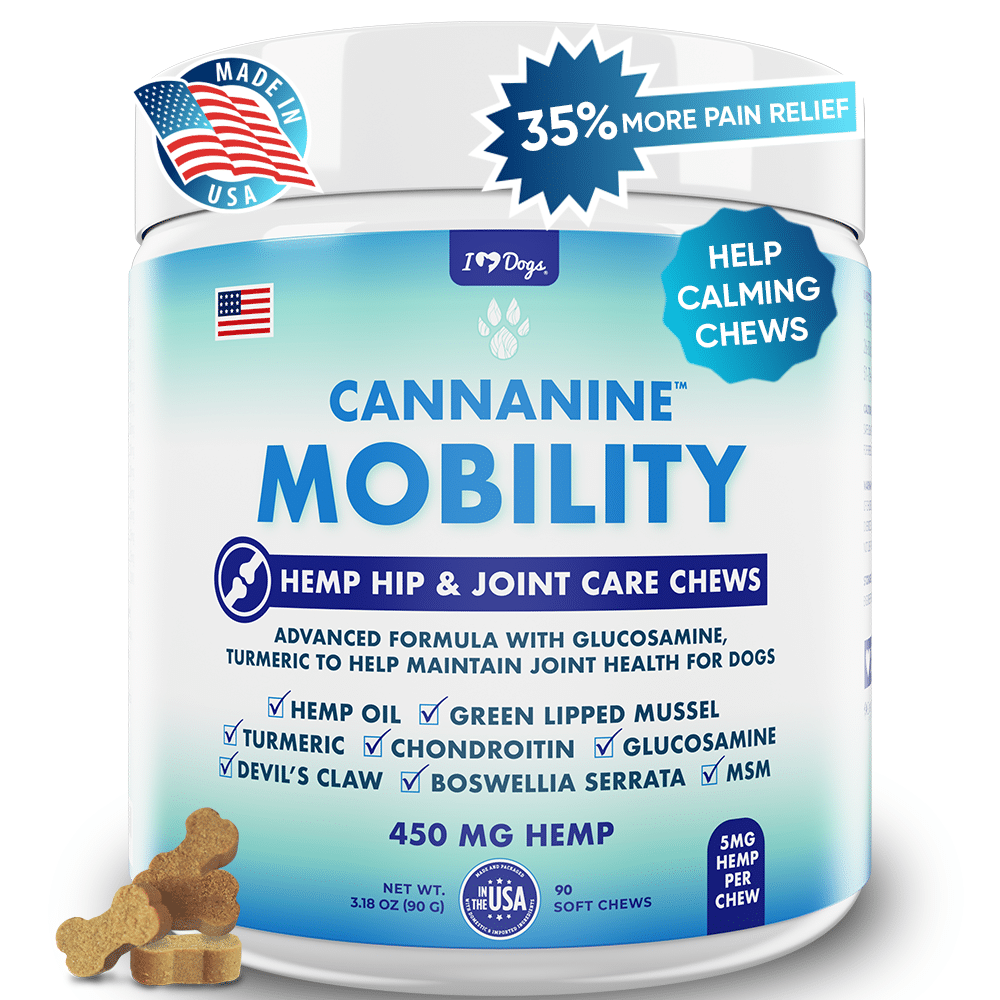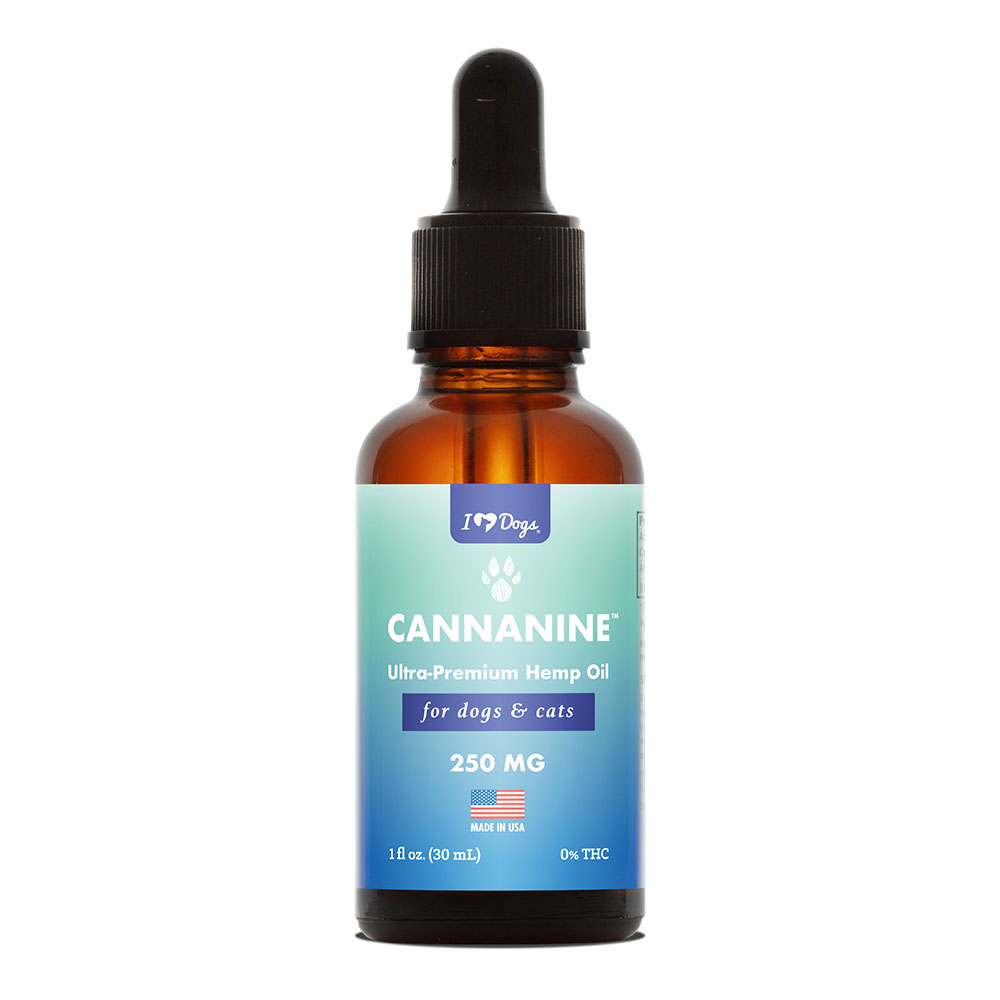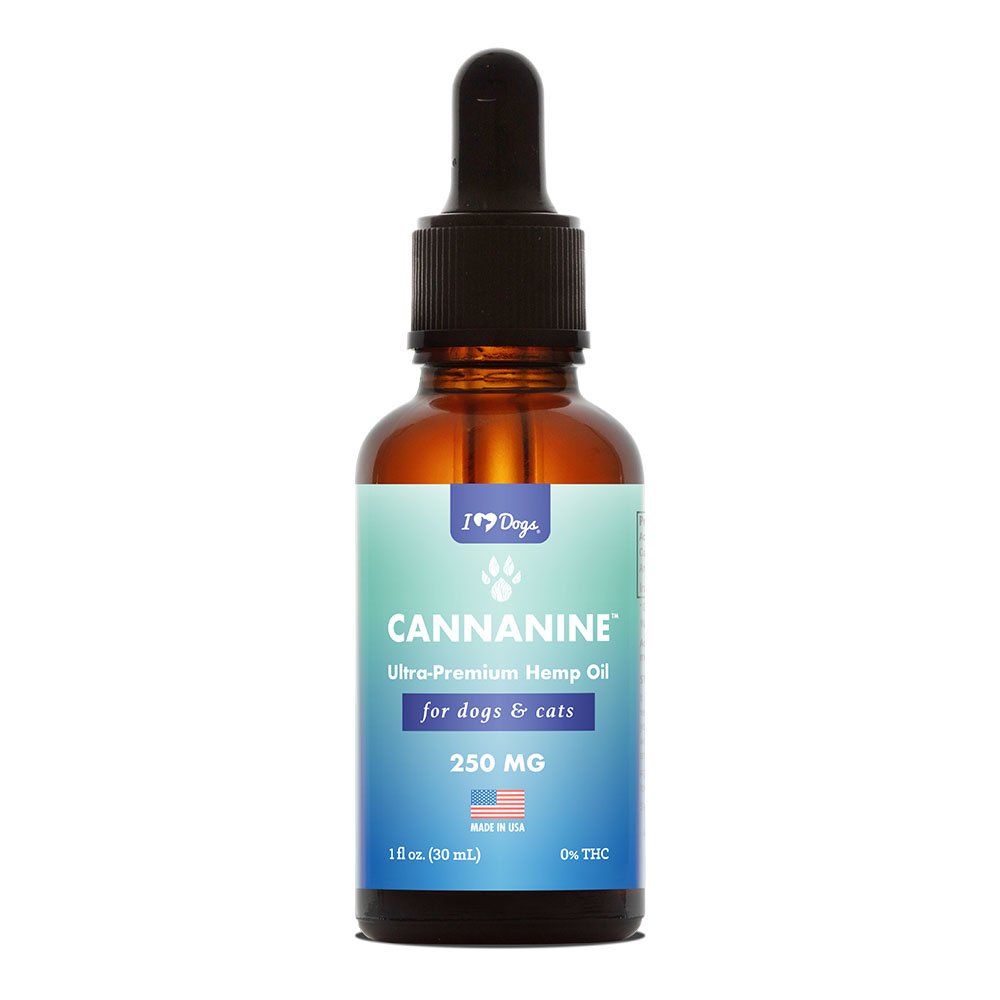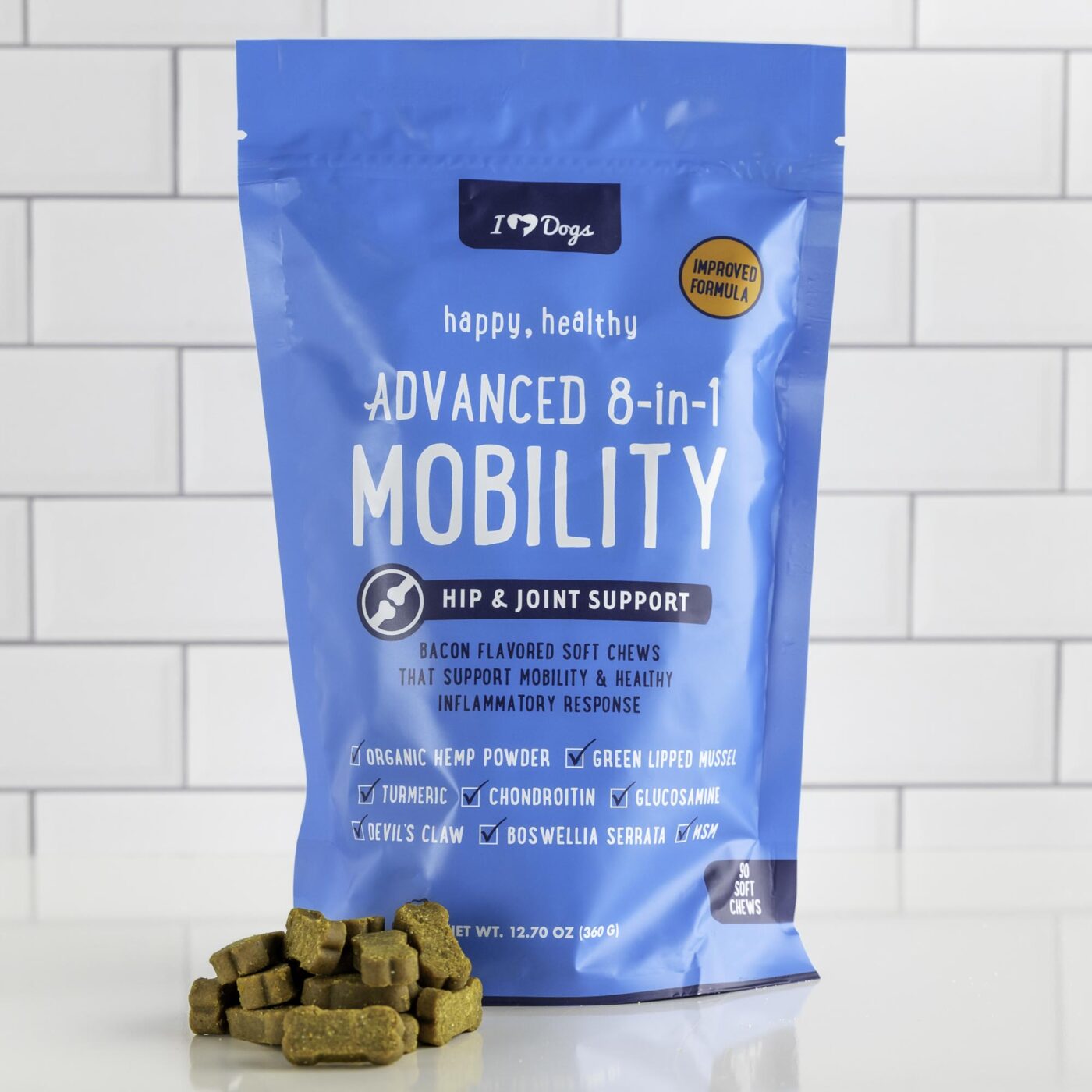German Shepherd Joint Supplements & Vitamins

What vitamins can I give my German Shepherd?
German Shepherds are more likely to develop certain health conditions such as bloat and hip dysplasia. Hip dysplasia is found in about 20 percent of all pure bred German Shepherds. Hip dysplasia can start showing symptoms as early as four months old in some dogs. Others could develop hip issues as they age. Vitamins that contain Glucosamine and Chondroitin are very important to help your dog have healthier and stronger joints. These two vitamins work by reducing inflammation, and slowing the breakdown of cartilage between the joints.
Do German Shepherds need vitamins?
German Shepherds would benefit greatly from taking a daily vitamin. They are prone to health issues such as hip dysplasia and Gastric Dilatation- Volvulus. Gastric Dilatation- Volvulus is commonly referred to as bloat. To help combat these health issues, prevention is key with a proper diet, exercise and vitamins.
Should you give German Shepherds joint supplements?
Yes, German Shepherds would benefit from joint supplements. Unfortunately hip dysplasia is fairly common in about 20% of German Shepherds. Giving your dog a hip and joint supplement that contains Glucosamine and Chondroitin are key to helping your pup at all stages of their life from puppy to senior. Joint supplements work by reducing inflammation and slowing the breakdown of cartilage. Studies have even shown that a joint supplement can help repair broken down cartilage as well.
Which food is best for a German Shepherd?
Food containing a high protein diet such as fish, chicken, beef, lamb, or pork are important for German Shepherds. Protein is important because it helps boost energy, helps with the immune system and improves skin, hair and nail health. German Shepherds also thrive on a diet rich in fat. The recommended fat content for an adult German Shepherd is 5% and for puppies 8%. Foods also containing fat are good for your German Shepherd because it helps strengthen the dogs skin and coat. German Shepherds have a thick coat that tends to shed year round so a healthy skin and coat is important.
Consider giving your German Shepherd a food topper as well with every meal. Food toppers are a wet dog food that is put on top of your dry kibbles. Some studies have shown that approximately 50% of nutrients are lost during the manufacturing process of dry dog food. Food toppers are a great addition to every meal because they provide all the vitamins and nutrients that were lost in dry dog food. They also make a tasty treat and combat food boredom by adding wet food texture and extra flavor to their diet.
Related: 9 Best Glucosamine Supplements for Dogs
Is fish oil good for German Shepherds?
Fish oil is an amazing supplement not just for German Shepherds but for any breed. It is safe to give to puppies, adult dogs and senior dogs. Making it a great supplement for all stages of life from the developmental years to the senior years. Fish oil contains Omega -3 Fatty Acids which helps your dogs overall health and well being. Omega Fatty acids are fats that we as humans or dogs cannot produce on our own. So it is exceptionally important that we incorporate Fish Oil not just into our dogs diet but our own diet as well. Fish oil:
- Improves immune system
- Relieves dry skin and allergies
- Reduces inflammation
- Helps puppies with proper brain and eye development
- Reduces joint pain
- Helps fight off diseases
Is glucosamine good for German Shepherds?
Glucosamine is a very good supplement for German Shepherds because of their common health condition, hip dysplasia. Glucosamine works by repairing cartilage between the joints. It also slows down the breakdown of cartilage. It is best however, to always pair glucosamine with Chondroitin to receive the full benefit of a joint supplement. Chondroitin works with glucosamine to reduce inflammation in the joints. Finding a joint supplement that contains these two ingredients is key to receiving the full benefit of a joint supplement.
What should I not feed my German Shepherd?
Lets face it, every dog wants to eat from their owners plate. Their little cute eyes peering up at you with the look of hope that one tiny table scrap might end up on the floor for them to eat. While table scraps are not the best option to feed your dog, we as pet owners give in sometimes. Here are foods to avoid as they are considered highly toxic to your German Shepherd:
- Grapes
- Chocolate
- Bone scraps from steak, chicken, pork chops
- Corn
- Berries
- Tomatoes
- Avocado
- Mushrooms
What age do German Shepherds start having health problems?
German Shepherds can start displaying issues with hip dysplasia as young as four months of age. It is important to look out for the signs of hip dysplasia so you can work together with your veterinarian to find the proper treatment tailored to your dogs’ age and lifestyle. The common symptoms of hip dysplasia are:
- Decreased activity
- Stiffness and Pain after resting
- Limping on hind legs
- Loss of muscle in the hind thighs
How can I help my German Shepherd who is in joint pain?
German Shepherds are a well-known breed because of their loyalty, obedience and protectiveness, but their breed also comes with health issues. One of those main health issues due to being a purebred is hip dysplasia. Hip dysplasia is very painful for German Shepherds. It is one of the reasons that over the years German Shepherds have changed their appearance of their hind legs. Hip dysplasia can begin to develop as early as four months old for some pups. Fortunately, there are options to help your dog who has joint pain and strengthen their cartilage as well.
Hemp Oil has become increasingly popular amongst veterinarians and pet owners because of all the natural benefits it has to offer. The best part is that it reduces the need for NSAID’s. NSAID’’s are generally not safe because they can cause deterioration in the dogs joints. When you are trying to help your dogs joint pain, you want to foster new growth of cartilage not deteriorate it. Hemp oil works by helping your dog’s endocannabinoid system regulate their sleep, mood and pain. Hemp oil also helps reduce inflammation. It has no harmful side effects and is safe to use every day. Make sure to look for a Hemp oil that does not contain any THC. THC is very unsafe for dogs and if ingested can be very toxic. Hemp oil comes in a variety of options to tailor to your dogs preference such as an oil or a chewable treat.
#1: For Maximum Efficacy, Choose a Supplement for Your German Shepherd with Multiple Active Ingredients
When most people think of a joint supplement for their german shepherd, glucosamine comes to mind. And while glucosamine is the most popular active ingredient, other powerful nutraceuticals include MSM, chondroitin, and turmeric (curcumin). If your supplement contains only one or two of these, you may be missing potential benefits. Different dogs respond to different treatments, so when in doubt, offer a broad spectrum of nutrients.
#2: Always Check The Amount of Active Ingredients
If the quantity of active ingredients (in milligrams) is not made available, the product likely contains low levels that are unlikely to have a therapeutic effect on your german shepherd’s joints. As a rule of thumb, your dog should receive 20 mg of glucosamine daily for each pound they weigh. Budget oriented joint supplements (often in the $15-20 a bottle range) often contain levels too low to make any serious impact on your dog’s joint health. In addition, dry dog food manufacturers have begun including trivial amounts of glucosamine in their products in an attempt to woo consumers. Make sure your dog receives enough to matter!
#3: Always Buy Supplements for German Shepherds Made In USA
While you’d expect that most pet stores would have transitioned to only carrying consumable products that are made in the USA, this is simply not the case. Many budget oriented pet stores, online retailers, and grocery stores still carry inferior supplements made in factories outside the USA with far lower production standards.
#4: Decide If You Want An Arthritis Supplement with or Without Hemp for Your German Shepherd
The last few years has brought about exciting advancements in the use of Hemp for dogs. Several clinical trials have shown Hemp can improve the mobility of arthritic dogs. Some brands have begun to offer their Hip & Joint supplements with Hemp or without Hemp.
#5: Results Will Vary Based on Your German Shepherd’s Age and Condition
Ideally, a joint supplement regimen should begin before signs of pain are present in your german shepherd. (ideally around 5 years of age, although large breeds may need earlier) In reality, however, we often don’t consider the need until signs of pain are apparent. If your dog is already showing signs of distress, a joint supplement can still offer substantial relief. However, it may take 1-2 months to show signs of improvement.
#6: Taste and Format Matters
The best joint supplement in the world is worthless if your dog refuses to eat it. The most popular formats of delivery for joint supplements are liquid, tablet chews, and soft chews, each with their own benefits and drawbacks. When it comes to palatability, soft chews and liquids tend to please the most canine palates. Because a soft chew can contain a wider variety of nutraceuticals (see item #1) it’s our preferred method.
Best Joint & Joint Supplement for German Shepherds
Our research in hip & joint supplements for dogs led us to develop & recommend natural dog hip & joint supplements as well as hemp oil for dogs and anxiety supplements for dogs. An added bonus of this brand is that each purchase goes towards helping provide food for animal shelters in need.
Top 9 Pet Insurance Plans for German Shepherds (2022)
- Best Joint Supplement for Dogs
- Best CBD Gummies for Dogs
- Goat's Milk for Dogs
- Skin & Coat Supplements for Dogs
- Weight Gain Supplements for Dogs
- Muscle Building Supplements for Dogs
- Heart Supplements for Dogs
- Multivitamins for Dogs
- Pill Pockets for Dogs
- Digestive Enzymes for Dogs
- Turmeric for Dogs
- Liver Supplements for Dogs
- Tear Stain Supplement for Dogs
- Breath Fresheners for Dogs
- Kidney, Urinary, & Bladder Supplements for Dogs
- Stool Eating Deterrent for Dogs
- Eye Supplements for Dogs
- Melatonin for Dogs
- Apple Cider Vinegar for Dogs
- Green Lipped Mussels for Dogs
- L Theanine for Dogs
- Chondroitin Supplements for Dogs
- MSM for Dogs
- Valerian Root for Dogs
- Chamomile for Dogs
- Boswellia for Dogs
- L Tryptophan for Dogs
- Yucca for Dogs
- Licorice Root for Dogs
- Bromelain for Dogs
- Papain for Dogs
- Devil's Claw for Dogs
- Quercetin for Dogs
- Hemp gummy for dogs
- Best Hemp Dog Treats
- Best Hemp Oil for Dogs
- Best Calming Treats, Chews, & Supplements for Dogs
- Best Bone Broth for Dogs
- Best Fish Oil for Dogs
- Best Probiotics for Dogs
- Best Hip Dysplasia Supplements for Dogs
- Best Colostrum for Dogs
- Best Quercetin for Dogs
- Best Greens for Dogs Supplements
- Best Vitamin C Supplements for Dogs
- Best Probiotic for Dog with Allergies
- Best Taurine Supplements for Dogs
- Best Dog Food Toppers
- Best Anal Gland Supplement for Dogs
- Best Dog Probiotic Powder
- Best CoQ10 Supplement for Dogs
- Best Liquid Glucosamine for Dogs
- Best Wrinkle Creams, Balms, and Wipes for Dogs
- Best Puppy Calming Treats
- Best Colloidal Silver for Dogs
- Best Adaptogen Supplements for Dogs
- Best Cognitive Supplements for Dogs
- Best Bee Pollen for Dogs
- Best Vitamin A Supplements for Dogs
- Best Vitamin E Supplements for
- Best Liquid Glucosamine Supplements for Dogs
- Best SAM-e Supplements for Dogs
- Best Hyaluronic Acid Supplements for Dogs
- Best Apple Cider Vinegar Supplements for Dogs
- Best Diarrhea Medicine for Dogs
- Best Milk Thistle for Dogs
- Best Turkey Tail Mushroom Supplements for Dogs
- Best Astaxanthin Supplements for Dogs
- Best Lutein Supplements for Dogs
- Best Electrolyte Supplements for Dogs
- Best Coconut Oil for Dogs
- Best Prenatal Vitamins for Dogs
- Best Puppy Milk Replacements
- Best Iron Supplements for Dogs
- Best Dewormer Products for Dogs
- Best Mange Medications for Dogs
- Best Cough Relief Products for Dogs
- Best Sinus Relief Products for Dogs
- Best Collapsed Trachea Supplements for Dogs
- Best Fireworks Anxiety Relief Products for Dogs
- Best Thunderstorm Anxiety Relief Products for Dogs
- Best Travel Anxiety Relief Product for Dogs
- Best Supplements for a Dog with a Torn ACL
- Best Supplements for a Dog with Patellar Luxation
- Best Supplements for a Dog with Intervertebral Disc Disease
- Best Zinc Supplements for Dogs
- Best Biotin Supplements for Dogs
- Best Tart Cherry Supplements for Dogs
- Best Resveratrol Supplements for Dogs
- Best Ginkgo Biloba Supplements for Dogs
- Best Ashwagandha Supplements for Dogs
- Best Supplements for Dogs with Cushing's Disease
- Best Adrenal Supplements for Dogs
- Best NAD+ Supplements for Dogs
- Best NMN Supplements for Dogs
- Best Supplements for Dogs with Dementia
- Best Supplements for Dogs with CCD(Canine Cognitive Dysfunction)
- Best Fiber Supplements for Dogs
- Best Spirulina for Dogs
- Best Hairball Remedies for Dogs
- Best Eye Drops for Dogs with Allergies
- Best Magnesium Supplements for Dogs
- Best Brushes for Double-Coated Dogs
- Best Dandelion Root Supplements for Dogs
- Best Probiotic for Dogs with Yeast Infections
- Best Flaxseed Oil for Dogs
- Best Chamomile Supplements for Dogs
- Best Lavender Supplements. Treats & Sprays for Dogs
- Best Collagen Supplements for Dogs
- Best Kelp Supplements for Dogs
- Best Activated Charcoal for Dogs
- Best Slippery Elm Supplements for Dogs
- Best Supplements for Dogs with Seizures & Epilepsy
- Best Antioxidant Supplements for Dogs
- Best Ubiquinol Supplements for Dogs
- Best Hormone & Glandular Supplements for Dogs
- Best Thyroid Supplements for Dogs
- Best Iodine Supplements for Dogs
- Best Dog Shedding Supplements for Dogs
- Best Detox Supplements for Dogs
- Best Postbiotics for Dogs
- Best Aspirin Products for Dogs
- Best Dog Anti-Nausea Products
- Best Dog Mouthwashes
- Best Camelina Oils for Dogs
- Best Hemp Seed Oils for Dogs
- Best Natural Anti-Inflammatories for Dogs
- Best Cancer Supplements for Dogs
- Best Sardine & Anchovy Oils for Dogs
- Best Fatty Acid Supplements for Dogs
- Best Chia Seed Supplements & Treats for Dogs
- Best Olive Oils for Dogs
- Best Amino Acid Supplements for Dogs
- Best Moringa Supplements for Dogs
- Best Echinacea Supplements for Dogs
- Best Cranberry Supplements for Dogs
- Best D-Mannose Supplements for Dogs
- Best Nettle Leaf Supplements for Dogs
- Best Marshmallow Root Supplements for Dogs
- Best Astragalus Supplements for Dogs
- Best Pumpkin Seed Supplement for Dogs
- Best Supplements for a Dog Wetting The Bed
- Best Blueberry Supplement for Dogs
- Best Bromelain Supplements for Dogs
- Best Yucca Supplements for Dogs
- Best Ginger Supplements for Dogs
- Best Rosehip Supplements for Dogs
- Best Allergy Medicines for Dogs
- Best Reishi Mushroom Supplement for Dogs
- Best Maitake Mushroom Supplement for Dogs
- Best Chaga Mushroom Supplement for Dogs
- Best Shiitake Mushroom Supplement for Dogs
- Best Cordyceps Mushroom Supplement for Dogs
- Best Lion's Maine Supplement for Dogs
- Have question? - Ask in our Dog Health Forum
- CBD for German Shepherds: What You Need to Know
- Best Supplements for a Senior German Shepherd
- Best Flea & Tick Products for German Shepherds
- Best Dog Foods for German Shepherds
- Best Online Dog Training Courses for German Shepherd
- Best Hip & Joint Supplement for a German Shepherd
- What Supplements Should I Give a German Shepherd Puppy?
- The 9 Best German Shepherd Puppy Foods
- Best Dog Beds for German Shepherds
- Improve Your German Shepherd's Skin & Coat with This One Hack
- Giving This to Your German Shepherd Daily Can Alleviate Itchy Allergies
- 6 Natural Ingredients to Fight Your German Shepherd's Allergies
- 8 Ways to Stop Your German Shepherd's Scratching
- 7 Ways to Calm Your German Shepherd's Anxiety
- 6 Remedies for Your German Shepherd's Diarrhea, Gas, or Vomiting
- 7 Best Dental Chews for a German Shepherd





 Toledo, United States.
Toledo, United States.